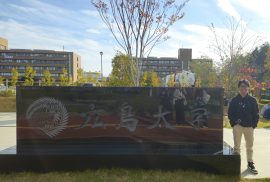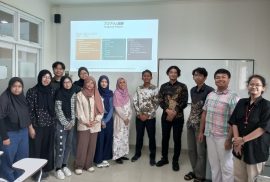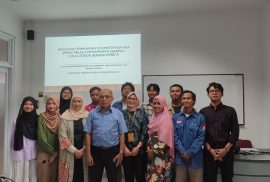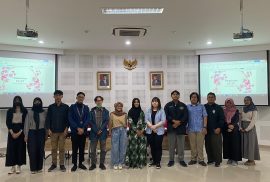Mahasiswa Program Studi Bahasa dan Kebudayaan Jepang telah menerima beasiswa MEXT Scholarship (Monbukagakusho) Japanese Studies Program 2024 dari Kementerian Pendidikan, Budaya, Olahraga, Ilmu Pengetahuan, dan Teknologi Jepang dengan jalur G To G (Government to Government) […].
Pada hari Jumat, 27 September 2024, prodi Bahasa dan Kebudayaan Jepang menyambut kedatangan tamu dari PT. Rupa Raya dan Marumori Company Co., Ltd. Kedua perusahaan tersebut merupakan perusahaan yang bergerak di bidang desain arsitektur rumah […].
Pada hari Kamis, 25 September 2024, program studi Bahasa dan Kebudayaan Jepang menyambut kedatangan dosen tamu dari Universitas Padjadjaran. Kedatangan dosen dari Universitas Padjadjaran ini berkaitan dengan dilaksanakannya kuliah bersama dengan topik Onomatope.
Pada hari Rabu 20 Maret 2024, Program Studi Bahasa dan Kebudayaan Jepang (BKJ) mengadakan sosialisasi beasiswa Monbukagakusho/MEXT bersama Kedutaan Besar Jepang Jakarta dengan Fenny Gunadi yang merupakan Study Abroad Advisor dan First Secretary Kawakubo Yuriko […].




